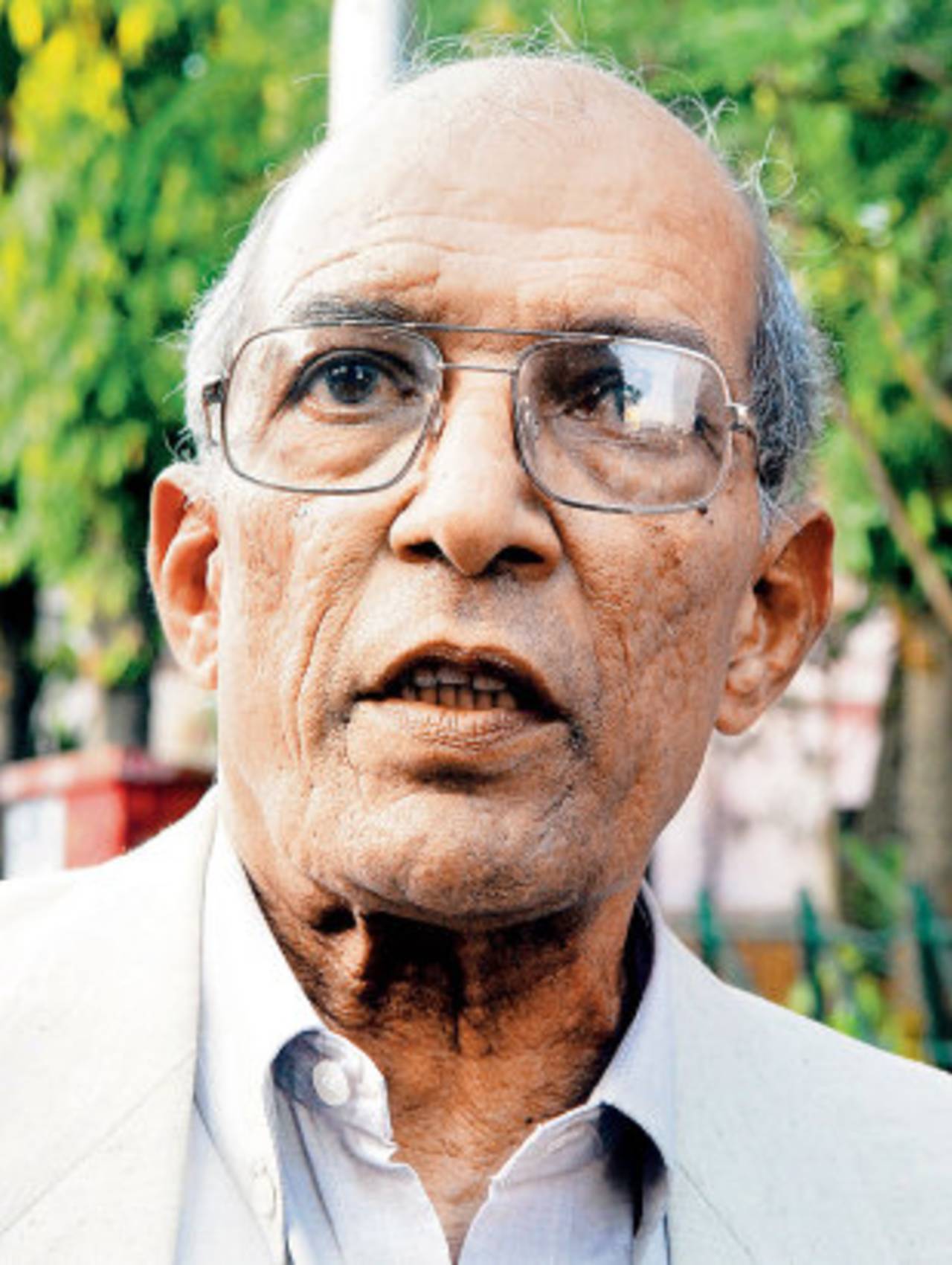Rusi Surti was India's Garry Sobers. There was something remarkably similar in the languid grace and easy pace at which Surti bowled the new ball.
Sobers may have been a greater mover of the ball but Surti could be deceptively sharp. More, there was the same sort of ebullience that he brought to the game; it made him a much-admired figure among youngsters.
Always ready to accept any challenge thrown at him by the game, Surti was a cricketer with a fine attitude. It showed in his fielding too. Sharp at cover or cover point, he could throw down the stumps with an accuracy that may have matched that of his captain,
MAK Pataudi.
Indian cricket fans may like to be reminded of those far-off days when India's fielding standards were uniformly high, close to the bat as well as in the deep. In Pataudi and Surti, they had two of the finest fieldsmen on the off side. Australia boasted Paul Sheahan in the covers when they played at home and toured India in the late '60s, but India had two men who could match him stride for stride in their panther-like movements in that lovely fielding position, which offers so much scope to show the full range of the art of fielding. That was the era in which India also had Eknath Solkar, who was beginning to excel at short leg, and Srinivas Venkataraghavan, Abid Ali and Ajit Wadekar close to the bat.
Against the pace bowlers, Surti was as courageous as his captain, even if he did not have half the stroke-making capacity of Pataudi. Surti was at his most fluent at the crease when he was up against pace bowlers. You can well imagine the impact cricketers like Surti and others of his time had in changing the face of Indian cricket from one when the retreating back foot was thought of as the norm. It was on the twin tours of Australia and New Zealand in 1967-68 that Surti made his greatest impression - so much, in fact, that he landed a contract with Queensland.
Surti scored
more runs than any other Indian batsman on the twin tours, which began disastrously, with Pataudi unfit and Chandu Borde taking over for the first Test. Wiped out 4-0 in Australia, the tourists went on to create history across the Tasman where they scored their first-ever Test- and series wins for India abroad. Surti topped the aggregate with 688 runs at an average a fraction under 46, and he took
22 wickets at under 36 runs apiece. In the famous
Brisbane Test, for which ML Jaisimha had been flown in, India came as close as 40 runs to victory, with Jaisimha making 74 and 101 and Surti chipping in with half-centuries in both innings and three wickets in each innings to boot.
It's a pity Surti did not make a Test century, though he came agonisingly close in the
Auckland Test. Bleary-eyed, we would tune in to the radio early to catch the play, so far east of India. If memory serves me right, Surti was twice dropped when in the 90 - perhaps he was 99 on both occasions, and the poor man was dismissed on the same score, caught by Mark Burgess in the slips off the quick Gary Bartlett.
Surti did not play too many Tests after that and was not picked after 1969, by which time he had settled in Australia. (There was never a firm rule about these things: Farokh Engineer would come over from Lancashire to don the blue national cap, but then he would also hurry across to play a first-class game in India to ensure the BCCI selectors would pick him.)
Surti will always be remembered as an uncomplaining person who loved to play the game because he enjoyed it. The comparison to Sobers was not always as pleasant as it seemed: Surti was called the "poor man's Sobers", and until he blossomed on the twin tours of 1967-68, was not seen as a vital component of the team.
And yet, he was not the sort to give bitter interviews about how he was discriminated against in selection. He was a constant for many years in the Gujarat team, although he did move to Rajasthan, before ending up in Queensland, for whom he played his last first-class game.
